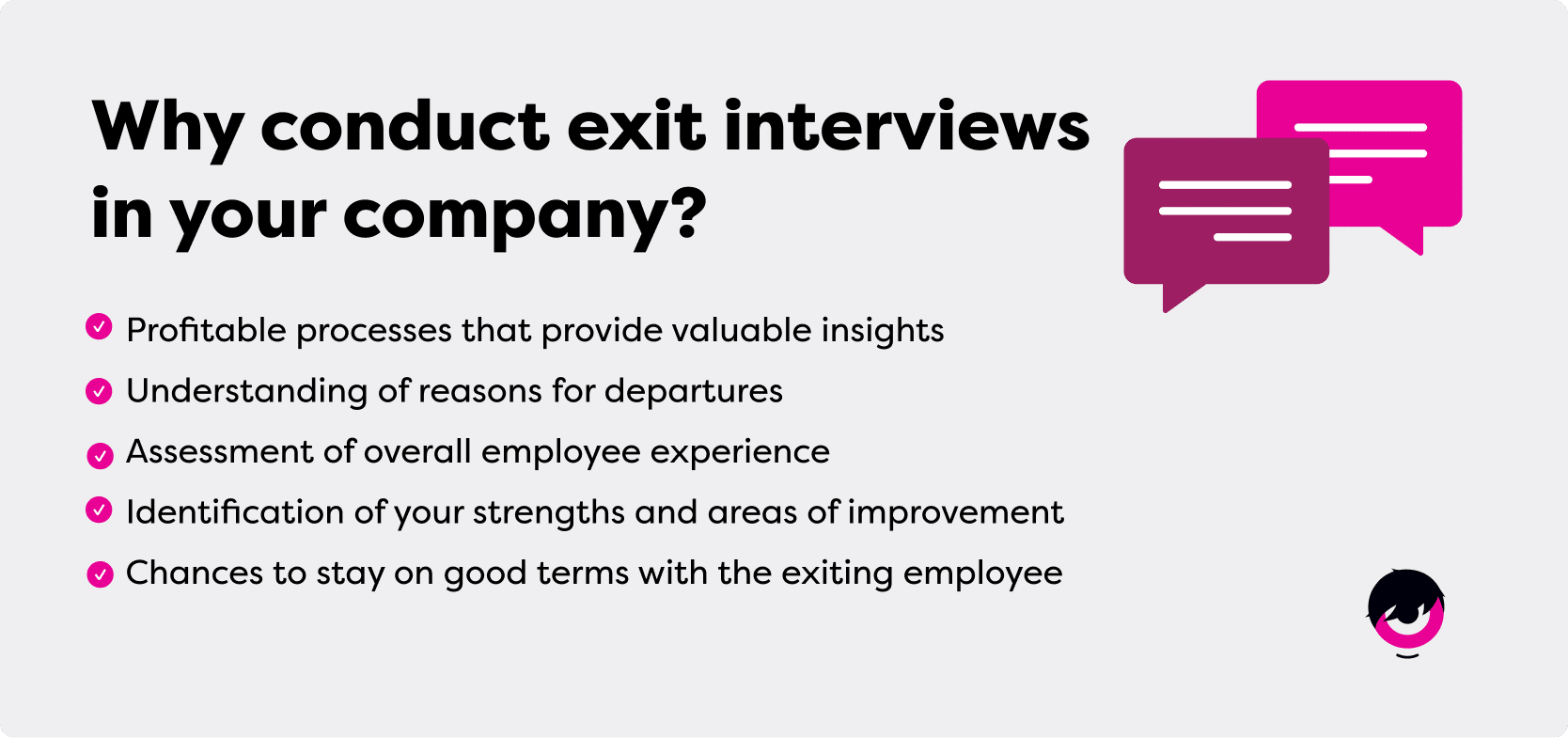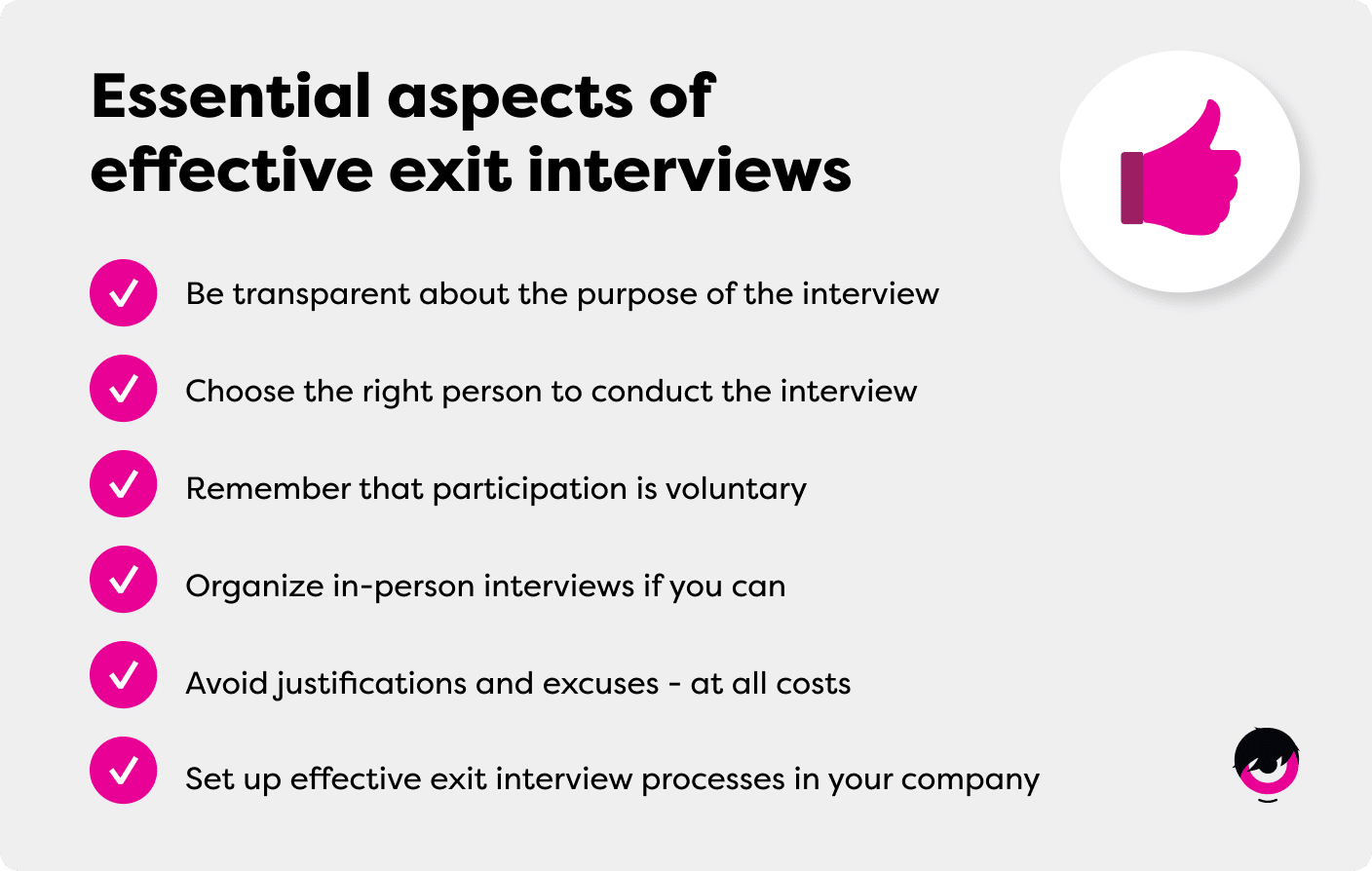Exit interviews are crucial to the success of any organization. Not only do they help you gather actionable insights about overall employee experience in your company, but when used properly, they reduce turnover rates by highlighting the reasons behind employee departures.
What’s more, an exit interview can be an opportunity to leave employees with a positive impression of your company.
Two things, then.
To get the most out of your exit management process when an employee leaves voluntarily, it’s important to ensure a positive experience for the employee. You also need that you ask the right questions to get honest feedback and improve your HR strategies. Without further ado, here are our tips and examples of questions for an effective exit interview!


















